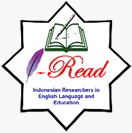Exploring student perspectives in amplifying students' speaking skills on English for hospitality internship
DOI:
https://doi.org/10.22219/englie.v5i1.30537Keywords:
Challenges, Hospitality, Internships, Perspectives, SolutionsAbstract
This research focuses on the experiences of hospitality internships in amplifying speaking skills. In particular, the objective of this research is to examine the students’ perspectives in the hospitality program on enhancing speaking skills as well as the challenges they face and their solutions to these challenges. Qualitative research methods, including questionnaires and observations, were used to gather data from students in the English Language Education Department at the University of Muhammadiyah Malang, Indonesia. There were 28 students enrolled in COE English for Hospitality Program, who participated in the study. The results showed that students' opinions about their experiences with speaking education during their hospitality internships varied. Additionally, challenges in hospitality internships encompass three main areas: delivery, language, and interaction. Some strategies were also provided to assist in overcoming the difficulties identified. It is accordingly advocated that teachers and students need to prepare better in terms of delivery, language, and interaction. hospitality internships can be implemented in the class and Internship programs.
Downloads
References
Akin, B. A., Mariscal, S. E., Bass, L., McArthur, V. B., Bhattarai, J., & Bruns, K. (2014). Implementation of an evidence-based intervention to reduce long-term foster care: Practitioner perceptions of key challenges and supports. Children and Youth Services Review, 46, 285–293. https://doi.org/10.1016/j.childyouth.2014.09.006
Amer, A. M., & Amer, A. R. (2023). The impact of some innovative strategies on developing EFL speaking skills of hospitality students. International Journal of Tourism, Archaeology and Hospitality, 3(2). https://doi.org/10.21608/IJTAH.2023.186853.1057
Appietu, M. E., Asimah, V. K., & Mensah, C. (2019). Does perception of hospitality employment change post internship? African Journal of Hospitality and Tourism Management, 1(2), 116–129. https://doi.org/10.47963/ajthm.v1i2.141
Argyriou, L., Economou, D., & Bouki, V. (2020). Design methodology for 360 immersive video applications: the case study of a cultural heritage virtual tour. Personal and Ubiquitous Computing, 24, 843–859. https://doi.org/10.1007/s00779-020-01373-8
Chan, C. S. C. (2021). Helping university students discover their workplace communication needs: An eclectic and interdisciplinary approach to facilitating on-the-job learning of workplace communication. English for Specific Purposes, 64, 55–71. https://doi.org/10.1016/j.esp.2021.07.002
Cheong, A. L. H., binti Yahya, N., Shen, Q. L., & Yen, A. Y. (2014). Internship experience: An in-depth interview among interns at a business school of a Malaysian private higher learning institution. Procedia-Social and Behavioral Sciences, 123, 333–343. https://doi.org/10.1016/j.sbspro.2014.01.1431
Clarke, V., & Braun, V. (2017). Thematic analysis. The Journal of Positive Psychology, 12(3), 297–298. https://doi.org/10.1080/17439760.2016.1262613
Creswell, J. W., & Creswell, J. D. (2017). Research design: Qualitative, quantitative, and mixed methods approaches. Sage publications.
Démuth, A. (2013). Perception theories. Kraków: Trnavská Univerzita, 2549.
DePaolo, C. A., & Wilkinson, K. (2014). Get your head into the clouds: Using word clouds for analyzing qualitative assessment data. TECH TRENDS. 58, 38–44. https://doi.org/10.1007/s11528-014-0750-9
Dewi, R. (2022). Adapted work placement delivery method under COVID-19 towards students’ job preparatory behaviours. Industry and Higher Education, 36(6), 716–729. https://doi.org/10.1177/0950422222112874
Godovykh, M., Baker, C., & Fyall, A. (2022). VR in tourism: A new call for virtual tourism experience amid and after the COVID-19 pandemic. Tourism and Hospitality, 3(1), 265–275. https://doi.org/10.3390/tourhosp3010018
Goh, E., & Lee, C. (2018). A workforce to be reckoned with: The emerging pivotal Generation Z hospitality workforce. International Journal of Hospitality Management, 73, 20–28. https://doi.org/10.1016/j.ijhm.2018.01.016
Goh, E., Nguyen, S., & Law, R. (2017). Marketing private hotel management schools in Australia. Asia Pacific Journal of Marketing and Logistics, 29(4), 880–889. https://doi.org/10.1108/APJML-09-2016-0183
Hadijah. (2022). The students’ perception of small group discussion for developing EFL students’ speaking skills. ELT Worldwide Journal of English Language Teaching, 9(2), 456-468. https://doi.org/10.26858/eltww.v9i2.37739
Hudjimartsu, S. A., Prayudyanto, M. N., Permana, S., & Heryansyah, A. (2022). Peluang dan tantangan implementasi merdeka belajar kampus merdeka (Mbkm) di fakultas teknik dan sains UIKA BOGOR. Educate: Jurnal Teknologi Pendidikan, 7(1), 58–70. https://doi.org/10.32832/educate.v7i1.6245
Icekson, T., & Pines, A. M. (2013). Positive perception: A three dimensional model and a scale. Personality and Individual Differences, 54(2), 180–186. https://doi.org/10.1016/j.paid.2012.08.034
Jackson, K., Bazeley, P., & Bazeley, P. (2019). Qualitative data analysis with NVivo. Sage.
Kita, S., & Emmorey, K. (2023). Gesture links language and cognition for spoken and signed languages. Nature Reviews Psychology, 1–14. https://doi.org/10.1038/s44159-023-00186-9
Lee, D., Ng, P. M. L., & Wut, T. M. (2022). Virtual reality in festivals: A systematic literature review and implications for consumer research. Emerging Science Journal, 6(5), 1153–1166. https://doi.org/10.28991/ESJ-2022-06-05-016
Lim, W. M., Jasim, K. M., & Das, M. (2024). Augmented and virtual reality in hotels: Impact on tourist satisfaction and intention to stay and return. International Journal of Hospitality Management, 116, 103631. https://doi.org/10.1016/j.ijhm.2023.103631
Lim, W. M., O’Connor, P., Nair, S., Soleimani, S., & Rasul, T. (2023). A foundational theory of ethical decision-making: The case of marketing professionals. Journal of Business Research, 158, 113579. https://doi.org/10.1016/j.jbusres.2022.113579
Marinakou, E., & Giousmpasoglou, C. (2013). An investigation of student satisfaction from hospitality internship programs in Greece. Journal of Tourism and Hospitality Management, 1(3), 103–112. https://doi.org/10.17265/2328-2169/2013.12.001
Mensah, C., Azila-Gbettor, E. M., & Wireko-Gyebi, S. (2023). Mapping hospitality and tourism internship research: A bibliometric and integrative review. Journal of Hospitality & Tourism Education, 1–33. https://doi.org/10.1080/10963758.2023.2175689
Mubaroq, A. D. M., & Prasetyarini, A. P. (2021). English teachers’ perception of the shift from offline to online teaching and learning during covid-19 pandemic in sma n 1 gemolong. Proceeding of The Progressive and Fun Education International Conference, 3, 7–15.
Musa, F., Yunus, M. M., & Othman, Z. (2023). The english communication experiences of accounting undergraduates during internships. Theory and Practice in Language Studies, 13(4), 901–910. https://doi.org/10.17507/tpls.1304.11
Nanni, A., & Ulqinaku, A. (2021). Mortality threats and technology effects on tourism. Annals of Tourism Research, 86, 102942. https://doi.org/10.1016/j.annals.2020.102942
Nety, N., & Nurhaeni, N. (2020). Students self confidence in speaking english. English Education Journal, 8–16. https://doi.org/10.55340/e2j.v6i1
Rachel, R., & Bidang, L. (2020). Students’perception in using task-based instruction (tbi) in teaching english at mechanical engineering students of uki toraja. Jurnal Andi Djemma| Jurnal Pendidikan, 3(1), 66–73. http://dx.doi.org/10.35914/jad.v3i1.339
Robinson, R. N. S., Kralj, A., Solnet, D. J., Goh, E., & Callan, V. (2014). Thinking job embeddedness not turnover: Towards a better understanding of frontline hotel worker retention. International Journal of Hospitality Management, 36, 101–109. https://doi.org/10.1016/j.ijhm.2013.08.008
Robinson, R. N. S., Kralj, A., Solnet, D. J., Goh, E., & Callan, V. J. (2016). Attitudinal similarities and differences of hotel frontline occupations. International Journal of Contemporary Hospitality Management, 28(5), 1051–1072. https://doi.org/10.1108/IJCHM-08-2014-0391
Self, T. T., Adler, H., & Sydnor, S. (2016). An exploratory study of hospitality internships: Student perceptions of orientation and training and their plans to seek permanent employment with the company. Journal of Human Resources in Hospitality & Tourism, 15(4), 485–497. https://doi.org/10.1080/15332845.2016.1148571
Sintiawati, N., Fajarwati, S. R., Mulyanto, A., Muttaqien, K., & Suherman, M. (2022). Partisipasi civitas akademik dalam implementasi merdeka belajar kampus merdeka (MBKM). Jurnal Basicedu, 6(1), 902–915. https://doi.org/10.31004/basicedu.v6i1.2036
Smallwood, J. (2013). Searching for the elements of thought: reply to Franklin, Mrazek, Broadway, and Schooler (2013). Psychological Bulletin, 139(3), 542–547. https://doi.org/10.1037/a0031019.
Sushy, S. (2017). Students’ perception toward politeness and impoliteness of the lecturers of english department at UKI TORAJA. Teaching English as a Foreign Language Overseas Journal, 5(3), 104–119. https://doi.org/10.47178/teflo.v5i3.448
Thu, H. N. A. (2021). A study on English communication skills at tertiary level. https://doi.org/10.31219/osf.io/tvm6q
Yen, P. H., Thuy, H. P., & Thuy, P. T. (2023). Employers’ perspectives of english-major students’ weaknesses during their industrial practicum. Journal of Language Teaching and Research, 14(5), 1270–1278. https://doi.org/10.17507/jltr.1405.15
Zhang, Y. (2009). Reading to speak: integrating oral communication skills. English Teaching Forum, 47(1), 32–34.
Zidianakis, E., Partarakis, N., Ntoa, S., Dimopoulos, A., Kopidaki, S., Ntagianta, A., Ntafotis, E., Xhako, A., Pervolarakis, Z., & Kontaki, E. (2021). The invisible museum: A user-centric platform for creating virtual 3D exhibitions with VR support. Electronics, 10(3), 363. https://doi.org/10.3390/electronics10030363
Zopiatis, A., & Theocharous, A. L. (2013). Revisiting hospitality internship practices: A holistic investigation. Journal of Hospitality, Leisure, Sport & Tourism Education, 13, 33–46. https://doi.org/10.1016/j.jhlste.2013.04.002
Downloads
Published
How to Cite
Issue
Section
License
Copyright (c) 2024 Ananta, B. D. B., Sholahuddin, M. F. T., & Waloyo, A. A.

This work is licensed under a Creative Commons Attribution-ShareAlike 4.0 International License.
Authors who publish with English Learning Innovation (englie) agree to the following terms:
- For all articles published in English Learning Innovation (englie), copyright is retained by the authors. Authors give permission to the publisher to announce the work with conditions. When the manuscript is accepted for publication, the authors agree to automatic transfer of the publishing right to the publisher.
- Authors retain copyright and grant the journal right of first publication with the work simultaneously licensed under a Creative Commons Attribution-ShareAlike 4.0 International License that allows others to share the work with an acknowledgement of the work's authorship and initial publication in this journal.
- Authors are able to enter into separate, additional contractual arrangements for the non-exclusive distribution of the journal's published version of the work (e.g., post it to an institutional repository or publish it in a book), with an acknowledgment of its initial publication in this journal.
- Authors are permitted and encouraged to post their work online (e.g., in institutional repositories or on their website) prior to and during the submission process, as it can lead to productive exchanges, as well as earlier and greater citation of published work (See The Effect of Open Access).
This work is licensed under a Creative Commons Attribution-ShareAlike 4.0 International License.
















1.png)












